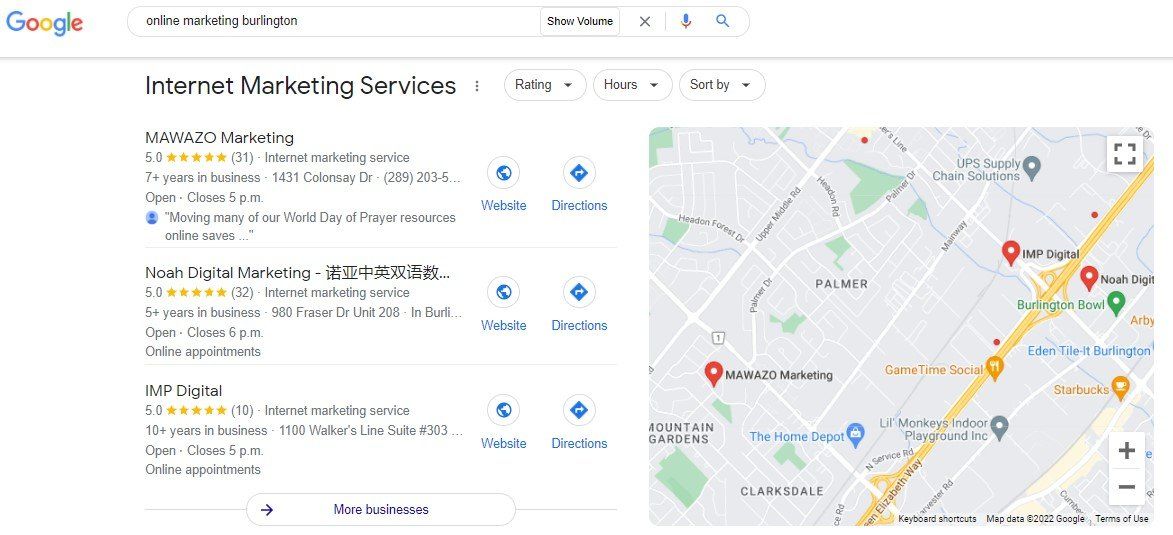Online reputation is crucial for the success of your company
Our online reputation management services establish trust in your business
A strong online reputation is essential for any business looking to succeed. With the vast majority of consumers turning to the internet to research products and services, it's more important than ever to ensure that your brand is presented in the best possible light. However, building and maintaining a positive online reputation can be a daunting task.
That's where our online reputation management services come in. We help you take control of your online presence, protect your brand from negative publicity, and boost your visibility in search results.
Online reputation management - how we build trust in your brand
Here are our step-by-step online reputation management services:
Reviews and Testimonials
Web visitors often look for reviews before making a decision, and Google considers reviews when ranking websites in their search results. Reviews may appear in mobile apps like Google Maps and Yelp. We actively encourage customers to leave a positive Google review, and we help you respond to positive and negative reviews in the best way possible.
We publish great reviews on your website. This establishes trust for new visitors and improves website ranking in Google searches.
The number of reviews on online directories and their rating has an important impact on how well your website ranks in search engines. A
Harvard Business School study showed that a restaurant that boosts its Yelp score by one full star can see revenues increase 5 to 9 %.
Use social media to engage with customers
We build a positive online presence on social media by developing a consistent brand image across all your social media accounts, using the same profile picture, cover photo, and branding colours. Next we create a content strategy that aligns with your business goals and target audience and publish relevant content. This can include a mix of original content and curated content. Finally we help you engage with your audience and encourage customers to leave reviews on your social media accounts.
Create and share valuable content
Your target audience is turning to Google to get their questions answered. We help them get their answers by creating informative and engaging content and optimizing it for search engine ranking. We then share this content on your website, social media accounts and other platforms to establish your company as a thought leader in the industry. Finally, we help you engage with your audience by asking questions and starting conversations.
Generate backlinks
Links from other websites to your website establish your online reputation. We reach out to other websites and blogs in your niche and ask them to link to your content. Another important activity is to carefully plan the internal linking on your website to help search engines understand the relationship between your pages. We monitor these backlinks regularly using tools like SEMrush, Ahrefs, Majestic and Google Search Console, and take steps to address any negative links that may be hurting your reputation.
Monitor your online reputation
We set up reputation monitoring for mentions of your company's name, and take quick and polite action when something positive or negative is said about your business
What are the benefits of online reputation management services?
There are several benefits of online reputation management services:
- Protecting your brand: Reputation management services can help you protect your brand by monitoring the internet for negative content and taking steps to address it.
- Improving visibility: Reputation management services can help you improve your visibility in search results by creating and promoting positive content and by optimizing your website for search engines.
- Building trust: Reputation management services can help you build trust with customers by responding to reviews and feedback in a timely and professional manner.
- Increasing revenue: A positive online reputation can lead to increased revenue by attracting more customers and increasing brand loyalty.
- Personal branding: Reputation management services can help to build positive personal brand for key executives and employees, which can improve the overall reputation of the business.
- Cost-effective: Reputation management services can save you time and resources by handling the monitoring, reporting and management of your online reputation, allowing you to focus on running your business.




